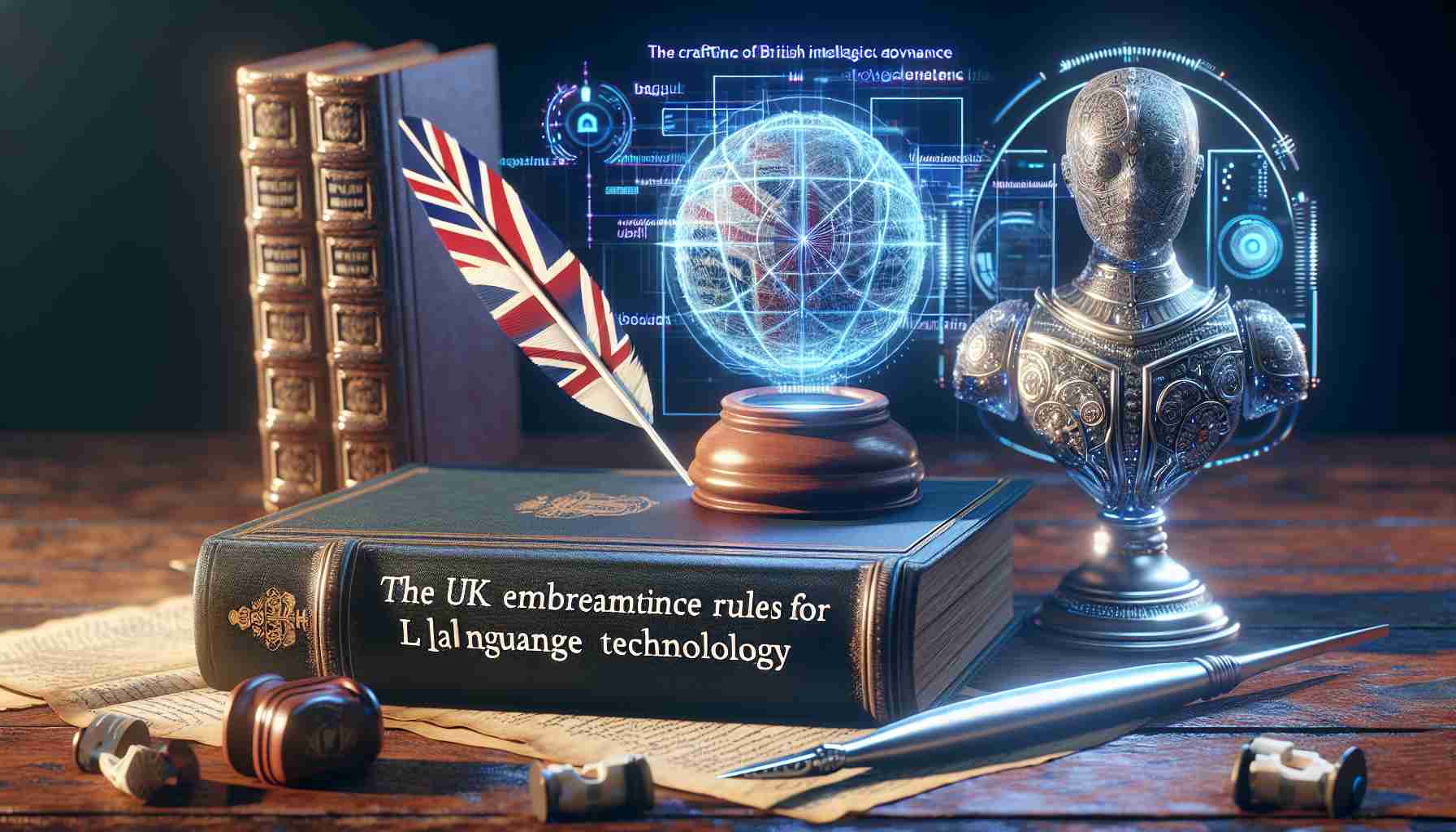The UK is taking a proactive approach to artificial intelligence regulation, with ongoing efforts to draft laws aimed at overseeing sophisticated language technologies. This shift in strategy appears to be in response to the rise of prominent AI tools like OpenAI’s ChatGPT, which are redefining the boundaries of machine-generated content. Although immediate legislation is not on the horizon, the British government is taking methodical steps that indicate a significant interest in controlling the AI landscape.
This undertaking is primarily driven by the Department for Science, Innovation and Technology, which is in the nascent phase of developing regulatory frameworks to safeguard users from the possible risks associated with AI utilization. Prime Minister Rishi Sunak’s administration has historically advised against hasty AI regulation. Nonetheless, there is a growing awareness within the government of the need to modernize UK copyright laws to protect the interests of creators against AI data scraping activities.
Globally, regulatory movements are gaining momentum. The European Union, for example, has already set a precedent by teeing up new directives concerning AI applications, with the AI Act passed by the EU parliament marking a new era of digital governance.
Across the Atlantic, the United States has taken a strategic leap forward by appointing an AI officer to the Department of Justice. This role is designed to advise on the intersection of technology and policy, implicitly acknowledging the growing influence of AI on present-day governance.
In light of questions about the UK’s legislative timeline for AI, a spokesperson for the Prime Minister reiterated the inevitability of AI regulation but advocated a balanced approach to ensure optimal outcomes for all stakeholders involved. This blend of caution and preparation showcases the UK’s intent to be a key player in the international conversation on AI policy.
Current Market Trends
The market for language technologies and AI is experiencing significant growth as businesses and consumers increasingly adopt AI-powered solutions for communication, content creation, and decision-making. The popularity of virtual assistants, chatbots, and predictive text engines is rising, and advancements in natural language processing (NLP) are making these technologies more sophisticated and user-friendly. There is an expanding market for AI tools in industries such as healthcare, finance, and customer service, where they help in tasks like diagnostic assistance, fraud detection, and personalizing customer interactions.
Forecasts
The AI market, particularly in language technologies, is expected to continue its rapid expansion in the coming years. According to market research reports, the global AI market size is projected to reach a multi-billion-dollar figure by 2025, growing at a compound annual growth rate of 20-30%. Language models like GPT-3 and its successors will drive innovation and new applications, leading to increased investment and commercial interest in AI technologies.
Key Challenges and Controversies
There are several challenges and controversies associated with AI governance, especially regarding language technology:
– Privacy Concerns: AI systems often require vast amounts of data for training, which can include sensitive personal information, raising privacy issues.
– Ethics and Bias: AI algorithms can perpetuate and amplify existing biases, leading to unfair outcomes and ethical dilemmas.
– Intellectual Property Rights: AI’s ability to generate content poses questions around copyright and ownership.
– Job Displacement: Automation through AI could disrupt labor markets, leading to potential job losses in certain sectors.
– Security: As AI systems become more integral to critical infrastructure, they become a target for cyberattacks, with potentially significant consequences.
Advantages and Disadvantages
Advantages:
– Enhanced Efficiency: AI can analyze and process data at a rate no human can match, leading to efficiency gains in various sectors.
– Improved Accessibility: Language technologies can help break down language barriers, providing translation services and improving accessibility for people with disabilities.
– Innovation: AI powers new products and services, driving innovation across industries.
Disadvantages:
– Dependence: Over-reliance on AI could make individuals and society vulnerable to technology failures or outages.
– Lack of Intuition: AI lacks the human touch and can struggle with tasks that require emotional intelligence or cultural nuance.
– Regulatory Challenges: Keeping pace with AI developments poses significant challenges for regulators and legislators.
For more information on the global developments and advancements in AI regulation and related technologies, you may visit the official websites of the leading entities in the field:
– OpenAI
– European Union (EU)
– UK Government
– US Department of Justice

